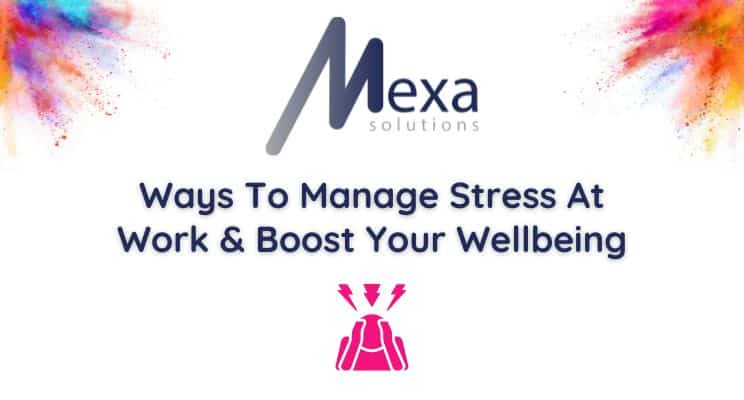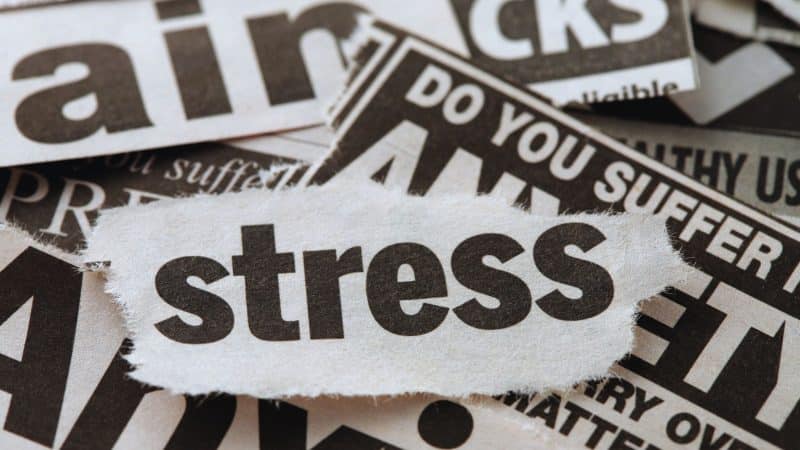
Workplace stress is a common challenge that impacts mental and physical health, energy, and productivity. In the UK, over 17 million working days are lost each year due to stress, depression, and anxiety according to the health and safety executive.
If unmanaged, stress can lead to burnout and chronic health issues. This blog explores how to spot work-related stress, manage it effectively, and boost wellbeing, resilience, and work-life balance.
Understanding Stress in the Workplace
Stress occurs when demands at work exceed your capacity to cope. Common causes of stress include high workload, tight deadlines, unclear responsibilities, and pressure at work. Stress affects employees physically and emotionally, with symptoms ranging from headaches, poor sleep, and fatigue to negative thoughts, irritability, and reduced motivation.
Key statistics:
- 1 in 5 employees report experiencing high levels of work stress regularly.
- Employees with unmanaged stress are more likely to develop health conditions such as heart disease or depression.
Recognising the signs of stress is the first step. These include feeling overwhelmed, struggling to focus, fatigue, mood swings, and physical symptoms like muscle tension or headaches.
Recognise and Manage Stress Triggers
Knowing your stressors allows you to take preemptive action. Regularly assess which aspects of your role cause stress and work on practical solutions, such as delegating tasks, adjusting workload, or improving time management.
One way to help manage it is to keep a journal to track triggers and identify patterns. This can help you implement targeted strategies to reduce stress at work.
Employers have a duty under health and safety legislation to help with their employees stress levels. Organisations can support employees through:
- Stress management training
- Employee wellness programs
- Policies for flexible working or workload adjustments
- Access to occupational health services
Engaging with these resources can help you feel supported, reduce your stress, and improve overall health at work.
Practice Mindfulness and Breathing Exercises
Mindfulness and deep breathing exercises are powerful tools to manage stress at work. Mindfulness helps you focus on the present, reducing negative thoughts and anxiety. Simple breathing exercises can help you relax during stressful situations and prevent physical and emotional strain.
Take a 2-5-minute pause away from your desk for deep breathing or a short mindfulness session to reset your mind and relieve tension.

Prioritise Workload and Organise Tasks
Feeling stressed often stems from juggling too many tasks at once. Start by creating a to-do list and prioritising tasks based on urgency and importance. Breaking large projects into smaller steps reduces pressure and helps maintain focus.
Build Resilience Through Self-Care
Resilience is your ability to cope with stress effectively. Good self-care practices, including a balanced diet, regular exercise, and a good night’s sleep, strengthen your ability to manage stress. Resilient employees can handle pressure at work without feeling overwhelmed or experiencing burnout.
Keep a sleep routine, limit caffeine late in the day, and engage in activities that promote relaxation, such as reading, meditation, or hobbies.
Take Regular Breaks and Move
Sitting for long periods or staying glued to your screen can amplify feelings of stress. Taking breaks away from your desk allows your mind to rest, lowers tension, and improves concentration. Short walks, stretches, or light exercise support both physical health and wellbeing at work.
Employees who take structured breaks report feeling more energised and less prone to stress-related symptoms.
Communicate and Seek Support
Workplace stress can be eased by talking to someone, whether it’s a colleague, supervisor, or your human resources department. Organisations often provide Employee Assistance Programs (EAPs) or counselling to help employees
Please Don’t wait until stress escalates. Early intervention prevents burnout and supports both your mental and physical health.
Maintain Work-Life Balance
Work stress often spills into personal life, affecting relationships and day to day health. Protecting your work-life balance is essential for long-term health. Set boundaries around work hours, avoid checking emails after hours, and make time for social connections and hobbies.
Employees who maintain a healthy balance are 63% more likely to go above and beyond for their company and are also more likely to stay in their current role.
Implement Stress-Reduction Techniques
Relaxation techniques such as guided meditation, progressive muscle relaxation, and visualisation exercises help employees cope with stress in real-time. These techniques reduce anxiety, lower blood pressure, and promote a sense of calm during high-pressure situations.
Spend 5 minutes visualising a peaceful scenario between tasks to help reset your mindset and reduce stress levels.
How Mexa Solutions Can Help
Mexa Solutions supports employees and organisations in managing workplace stress and improving happiness. We provide practical tools to recognise stress, reduce pressure at work, and build resilience.
Beyond stress management, Mexa can also help you find a new role that aligns with your career goals and supports a healthier work-life balance. With guidance on career transitions and access to employee support services, we help you take control of your work situation, reduce stress, and maintain your energy and focus.
Final Thoughts
Workplace stress affects employees and organisations alike. Noticing the signs of stress, using practical tools to manage workload, practising mindfulness, and seeking support are key to improving wellbeing at work. Implementing these strategies will not only help you manage and reduce stress but also enhance energy levels, resilience, and overall satisfaction in your professional life.
Stress at work does not have to be a constant struggle. Take the first step today and invest in your health and wellbeing to prevent burnout, boost productivity, and enjoy a healthier, happier career.
Frequently Asked Questions (FAQs)
How can I spot the signs of stress at work?
It’s important to spot the signs early. Symptoms of stress can include headaches, fatigue, irritability, difficulty concentrating, and sleep problems
How does my organisation’s work policy affect stress levels?
A clear work policy outlining roles, responsibilities, and expectations can significantly reduce workplace stress. Policies that include flexible working, clear communication channels, and employee support programs help employees cope with pressure at work.
 This blog was written by Hollie Agombar, Senior Digital Marketing Executive at Mexa Solutions
This blog was written by Hollie Agombar, Senior Digital Marketing Executive at Mexa Solutions
